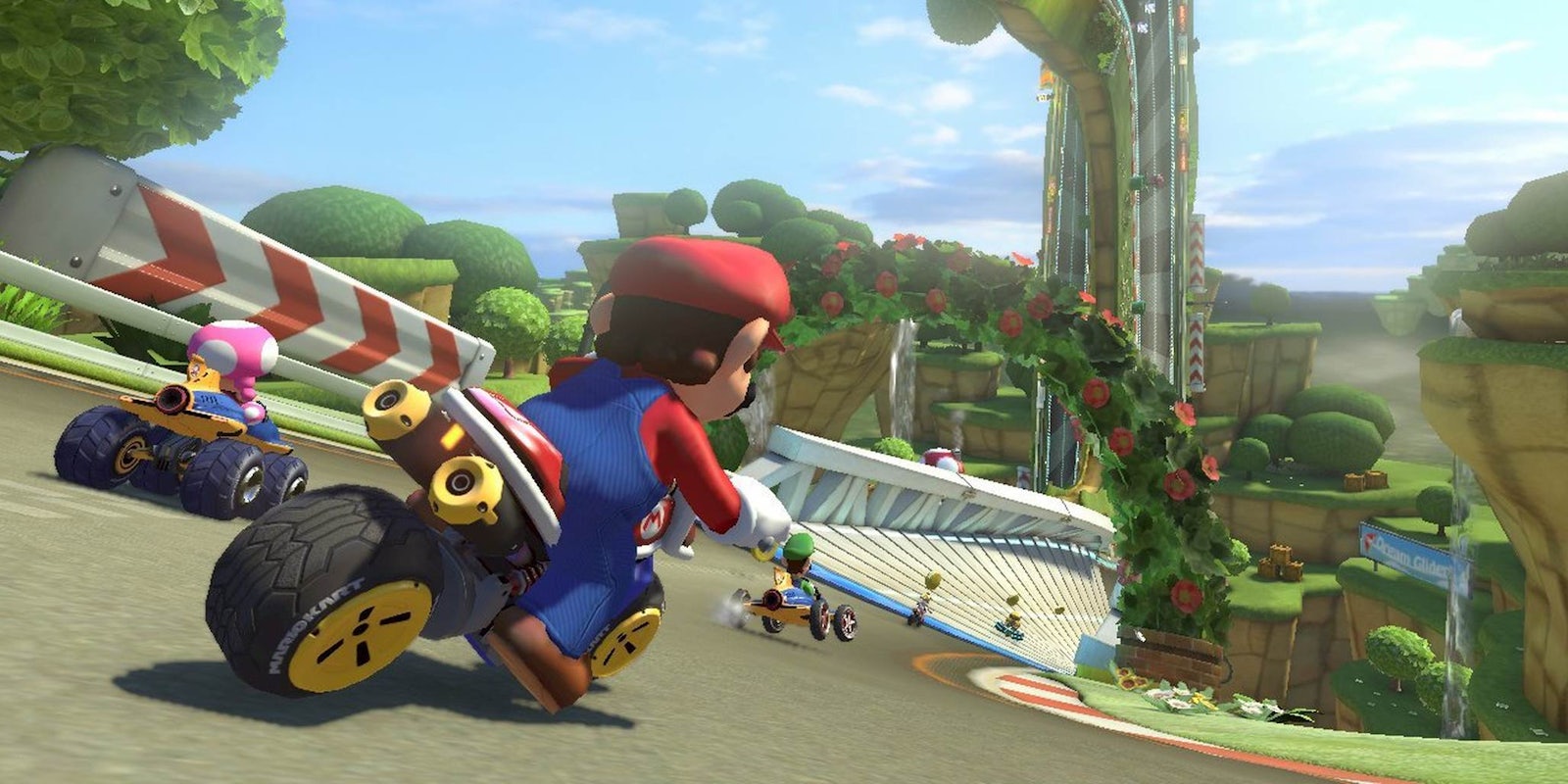On May 30, Nintendo will finally release Mario Kart 8, the latest and much anticipated incarnation of its popular racing series.
The company needs the game to be the “killer app” for its Wii-U system, which has fallen behind in sales to Sony’s PlayStation 4 despite having a yearlong head start. That’s why gamers were shocked to learn last week that Nintendo has no plans for voice chat support in Mario Kart 8.
Nintendo is clearly worried about the potential for bullying and harrassment, as well as any bad press that might bring. This is the latest in a long history of Nintendo giving in to fears of abuse at the cost of its customers.
The company approaches these problems very mechanically. For example, when the GameCube launched in 2001, it released games on Mini DVD’s instead of regular DVDs, making piracy more cumbersome. Now, instead of finding smart ways to cut down trolling on voice chat, Nintendo is removing the feature entirely.
But it’s more than just a fun feature that Nintendo’s cutting—it’s one that has become an essential part of modern gaming. Anyone who’s ever played Mario Kart with friends knows how important screaming at one another is to the gameplay experience, whether it’s on the couch or over headsets. Making Mario Kart silent takes out a key social aspect.
It’s understandable why Nintendo would disable voice chat between all players. Trolls are an unavoidable part of online play. But not even allowing friends to chat? That’s just baffling.
This move could set a worrisome precedent for fans of Nintendo’s other competitive game series. As with Mario Kart, the next game in the Super Smash Bros. series could push a lot of Wii U sales. But if Smash Bros lacks voice chat support, it would make it harder for competitors to collaborate with one another and develop strategies for tournament play. That in turn could cut into the game’s longevity.
This isn’t the first time Nintendo has bucked broader trends in gaming and esports. In 2012, Evo, the largest fighting game tournament in North America, attempted to add Super Smash Bros. Melee to its roster. Nintendo sent a cease and desist letter, which led to a massive outcry from all parts of the internet.
And Nintendo’s apparent hostility to gamer culture extends beyond esports. Last year, the company also sent cease and desist letters to YouTubers who were profitingby streaming Nintendo gameplay. It makes sense why Nintendo would object to this. But the fact is, popular streams are essentially free advertising. Kids who’ve grown up watching YouTube have grown accustomed to sharing them online, and their decision to purchase a game may be influenced as much by their favorite streamer as their friends.
Twitch, the leader in video game streaming, sees 40 million unique visitors a month, and studios who tap into this audience reap the benefits. For example, developers like Bethesda and Blizzard have given early access to their new releases to prominent streamers. So before anyone’s played a game, fans can watch their favorite online personalities play through The Elder Scrolls Online and Hearthstone. Streamers build a special kind of buzz. Nintendo needs to engage modern gaming culture, not ignore it.
There’s still a chance the company will change its mind and include voice chat support in the future. It may depend on just how furiously the Internet reacts to the news. There’s a microphone on every Nintendo Wii U gamepad for a reason, after all.
Image via Nintendo
